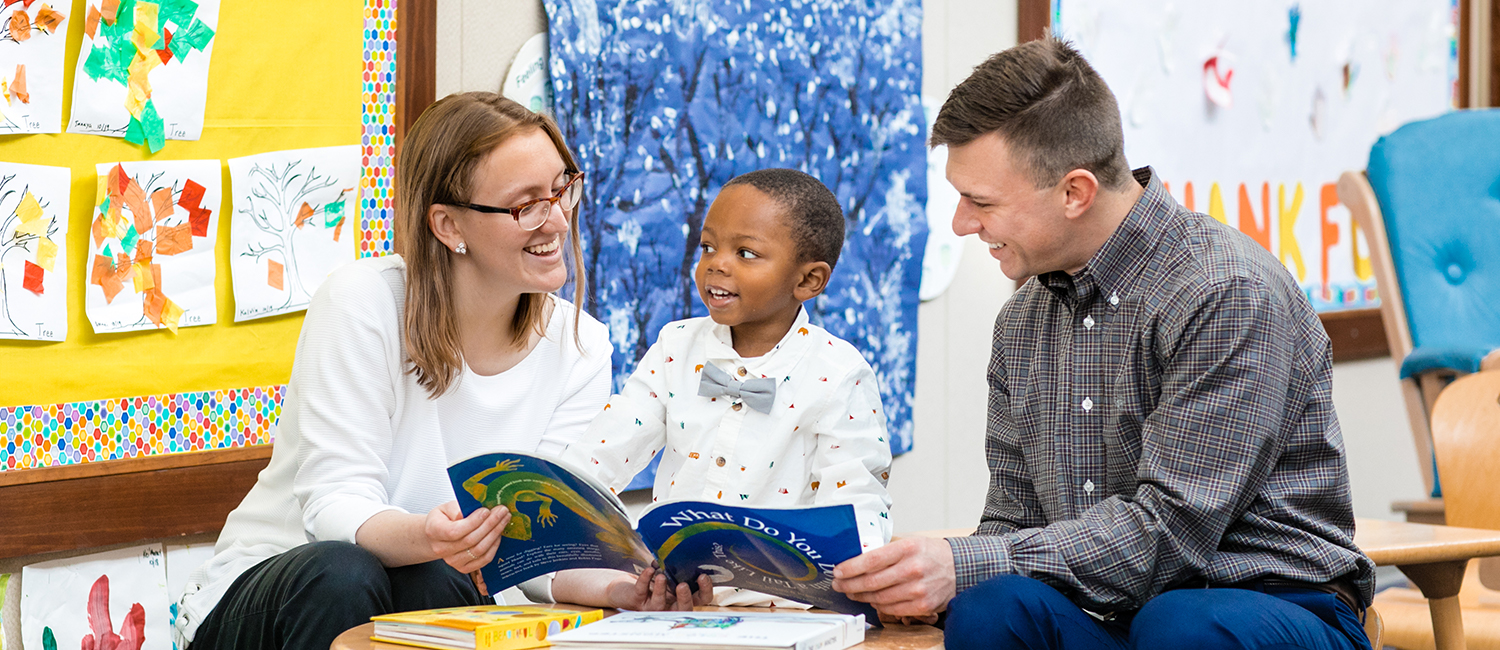
Getting more empathy from children’s storytime
The books are straight off the shelves of any library’s or bookstore’s preschool section – “Little Lion Shares,” “Calm Down Time” and “Kindness Rules!” – but UWM researchers are reading them to children with more than storytelling in mind. They’re evaluating whether preschool children can simultaneously improve their reading readiness and their social emotional learning in areas such as friendship and empathy.
The work is being conducted by School of Education graduate students and Karen Stoiber, who is the Mary and Ted Kellner endowed professor in early childhood education. The research is part of Project BRIGHT (Book Reading to Improve Growth and High Quality Teaching), which Stoiber started at the Next Door Head Start Center in 2017.

Books used for the project included social emotional learning content, such as friendship-making. In addition to reading to preschoolers in small groups, doctoral students also assessed the young readers and collected data on the project’s results.
Preschoolers were divided into three groups. In one group, the graduate students simply read books to the children. In the second, grad students read the books and pointed out letters, letter sounds, rhyming and vocabulary words.
In the third group, the social emotional learning group, graduate students took things a step further. They not only read the book, but also talked with the children about feelings, including ways to be a good friend and strategies for calming down when they were angry.
For example, with a book called “Llama Llama and the Bully Goat,” children were asked what it means to be a bully and a friend or how friends are different from bullies. The main idea, Stoiber says, is giving the children “explicit opportunities” to explore what it feels and looks like to be a friend versus a bully.
The graduate students administered standardized assessments of literacy and social emotional abilities before and after their sessions. They also explored other facets related to the project.
“One question from a research perspective,” says project member and school psychology doctoral student Glenna Gransee, “is that if you’re spending time doing this additional social emotional component, are you taking away from the time allotted to literacy and to what extent is that impacting it?” Gransee is one of five doctoral students on the project, as is Zach Bella, who transferred to UWM specifically because of his interest in Stoiber’s work.
Preliminary results showed children in both of the shared book reading groups gaining literacy skills, and children in the social emotional learning group gaining in their recognition of feelings and self-management skills.
“We’re trying to find out what works and what’s actually really improving children’s outcomes,” Stoiber says, “especially for children with various unique needs and characteristics that might place them at greater need for personalized interventions.”